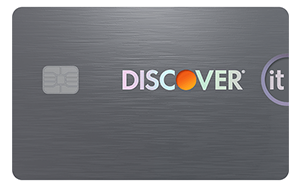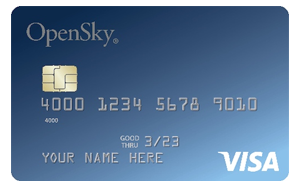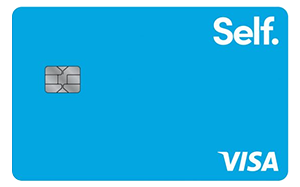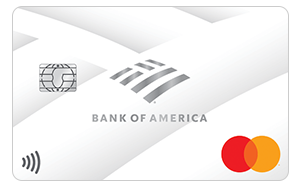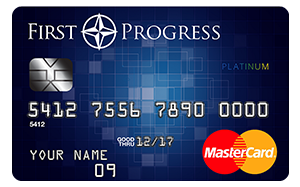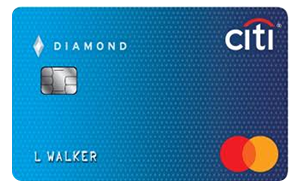Table of Contents
What is new credit?
“New credit” has two meanings in the credit industry. It often just refers to new credit accounts, i.e., credit cards or loans that you recently took out. However, “new credit” is also the name of one of the factors that the FICO and VantageScore credit scoring models use to calculate your credit score. In this context, it’s sometimes also called “pursuit of new credit.”
How new credit influences your FICO credit score
New credit is one of the less influential factors in the major scoring models. It affects just 10% of your FICO score.

How new credit influences your VantageScore credit score
New credit affects 5% to 11% of your VantageScore (depending on whether your lender uses VantageScore 3.0 or VantageScore 4.0). It’s slightly more influential in the newer VantageScore 4.0 model.

What contributes to the “new credit” scoring factor?
According to FICO, the new credit category considers: 1
- How many credit accounts you’ve opened recently
- How many hard inquiries (credit checks) you’ve triggered
- How long ago you last opened a new account
How does opening a new credit account hurt your credit?
When you open a new credit account, such as a credit card, you’ll usually see a small and short-term drop in your credit score. This happens for two main reasons:
1. Applying for new credit triggers a hard inquiry
When you apply for new credit, your lender will usually check your credit report, at which point you’ll receive a hard inquiry (or a “hard pull”) on your credit report. Hard inquiries take a few points off your credit score—around 5 points off your FICO score and up to 10 off your VantageScore. 1 2
Frequently applying for credit can drop your score because you’re triggering multiple inquiries. However, the scoring models usually count multiple inquiries of the same type as a single inquiry if they appear on your credit report within a short period, which makes it possible to shop around for loans without damaging your credit score too much.
New credit inquiries only appear on your credit for a short time
Hard inquiries appear on your credit report for two years, after which point they naturally fall off. 3
Hard inquiries affect your credit score for a much shorter period. FICO only considers inquiries from the past year, and VantageScore says hard inquiries no longer impact your credit after six months. 3 4
Check how many new credit inquiries are already on your credit report
Get a free copy of your credit report from AnnualCreditReport.com to see how many hard pulls you’ve received. If there are several inquiries on your report, consider waiting a few months before you open a new credit account.
2. Opening new accounts lowers your credit age
The length of your credit history affects your credit score. In general, if you have a longer history (which is primarily determined by the average age of your accounts) your score will be higher.
Opening a new credit line lowers the average age of your accounts, which in turn hurts your credit score.
Your credit age is also a relatively unimportant scoring factor (constituting around 15% of your score in both FICO and VantageScore’s models) which means that the damage won’t be too severe unless you open a lot of accounts in a short period of time. For this reason, it’s best to only apply for new credit cards and loans when you really need them.
How opening a new account can improve your credit score
Although it can damage your credit score in the short term, opening a new credit account can actually improve your credit in the mid-to-long-term, provided you manage your credit responsibly.
When you open a new account, you can:
Improve your payment history
Your payment history counts for 35% of your FICO score, so opening a new credit account and establishing a record of timely payments is one of the best ways to boost your score. This is especially true if your credit history was previously relatively thin (i.e., if you didn’t have many credit accounts).
Lower your credit utilization
Opening a new credit card will affect your credit utilization rate (also known as your debt-to-credit ratio). This is the percentage of your available credit that you’re actively using.
Experts recommend aiming for a credit utilization rate under 30%, and VantageScore says that a single-digit ratio is ideal. 5 Consumers with the best FICO scores have an average utilization rate of 6%. 6
Opening a new card increases your credit limit. As you don’t overspend on your card, this will lower your utilization rate and boost your score.
Diversify your credit mix
The credit scoring models also reward you for having a good credit mix—in other words, for managing a variety of accounts. If you only have an installment loan (like a car loan), opening a revolving account (like a credit card) will boost your score, and vice versa.
| Credit Card | Best For | Credit Score | Annual Fee | Welcome Bonus | |
|---|---|---|---|---|---|
| Bad Credit Overall | 300–669 | $0 | Cashback Match | ||
| Secured | 300–669 | $0 | |||
| Unsecured (No Deposit) | 300–669 | $0 | |||
| No Interest | 300–669 | $0 | |||
| No Credit Check | 300–669 | $35 | |||
| No Fees | 300–669 | $0 | |||
| High Credit Limit | 300–669 | $39 ($0 for the first year if you set up autopay) | |||
| Rewards | 300–669 | $0 | |||
| Building Credit | 580–739 | $0 | |||
| Credit Card | Best For | Credit Score | Annual Fee | Welcome Bonus | |
|---|---|---|---|---|---|
| Secured Overall | 300–669 | $0 | Cashback Match | ||
| No Credit Check | 300–669 | $35 | |||
| Beginners | 300–669 | $25 | |||
| No Annual Fee | 300–669 | $0 | |||
| Bad Credit | 300–669 | $49 | |||
| Rebuilding Credit | 300–669 | $0 | |||
| Credit Card | Best For | Credit Score | Annual Fee | Welcome Bonus | |
|---|---|---|---|---|---|
| Secured | 300–669 | $0 | Cashback Match | ||
| Unsecured (No Deposit) | 300–669 | $39 ($0 for the first year if you set up autopay) | |||
| Beginners | 300–669 | $49 | |||
| Students | 580–739 | $0 | Cashback match | ||
| No Annual Fee | 300–669 | $0 | |||
| High Approval Odds | 300–669 | $35 | |||
| Building Credit | 300–669 | $0 | |||
| Credit Card | Best For | Credit Score | Annual Fee | Welcome Bonus | |
|---|---|---|---|---|---|
| No Credit Overall | 300–669 | $0 | Cashback Match | ||
| Starters | 300–669 | $49 | |||
| Students | 580–739 | $0 | Cashback match | ||
| No Credit Check | 300–669 | $35 | |||
| No Annual Fee | 300–669 | $0 | |||
| Unsecured (No Deposit) | 300–669 | $75 for the first year ($48 after) | |||
| High Credit Limit | 300–669 | $39 ($0 for the first year if you set up autopay) | |||
| Instant Approval | 300–669 | $75–$99 the first year, then $99 annually | |||
| Beginners | 300–669 | $0 | |||
That said, if you already have several credit cards or loans, adding another account of that type probably won’t benefit you.
When should you apply for new credit?
The best approach is to only apply for new credit when you need to and to make sure you always have a plan in place to repay your debt. That way, you won’t rack up too many hard inquiries and you’re less likely to miss payments.
Takeaway: Only open new credit accounts when you need to
- New credit is one of the least important scoring factors. It only counts towards 10% of your FICO score.
- Three factors determine how you'll score in the new credit category: how many new accounts you have, how long ago you last applied for credit, and how many hard inquiries are on your credit report.
- Opening a new credit account hurts your credit in some areas but helps it in others, so your score shouldn’t suffer a major drop.
- Each time you open a new credit account, a hard inquiry will appear on your credit report and take a few points off your score. You'll also lose points because your credit age will fall.
- Opening a new credit card can boost your credit score because your available credit will increase, which in turn will drop your credit utilization. New accounts can also help you to earn more points in the payment history and credit mix categories.

